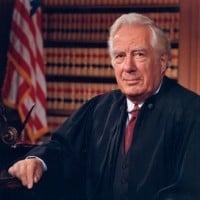Top Ten Most Influential U.S. Supreme Court Justices
The Supreme Court is the highest Court in the United States. It is comprised of eight Associate Justices and one Chief Justice. The Court is filled the smartest and most talented writers, orators, and intellectuals in the States. In history, we have had many that were even more than that. Which Justices were most influential?In this list, we will be looking at the most influential Supreme Court Justices in history. The choices will be based on their judicial philosophy, their rulings in famous cases, their control in influence in their respective courts and history, and their overall contributions to the Court. Any stats you may see were found on Britannica. Feel free to add whoever you would like. Just be sure they actually served on the Court. I hope you enjoy this list.
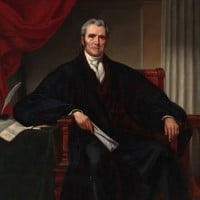
John Marshall was the Chief Justice of the Supreme Court from 1801 to 1835. He was appointed by President John Adams. He is unquestionably the most influential member of the Court in history. Before his commission, on the Court, the Court had little to no influence. John Jay, the first Chief Justice, even resigned his chair to become governor of New York. Marshall would change that almost immediately. In his 34 year tenure, his court handed down over 1000 decisions. Marshall wrote over 500 of them. His most important case was Marbury v. Madison. It is, debatable, the most important case in history. The majority opinion, wrote by Marshall, declared that a certain federal law was unconstitutional. This would lay the foundations of the court, it set a precedent for the Court's overarching authority, it created the power of Judicial Review, and strengthened the power of the Courts. Later in his commission, McCulloch v. Maryland came to the court. The majority opinion wrote that the states could not tax the federal government. A decision that is either good or bad based on your opinion on the States Right. To sum it all up, John Marshall was the most influential Supreme Court Justice, because of his crucial role in creating Judicial Review and increasing the power of the Supreme Court.
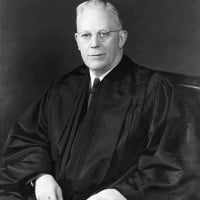
Earl Warren was the Chief Justice on the Supreme Court from 1953 to 1969. He was appointed by President Dwight D. Eisenhower. The Warren Court was one of the most active courts in history. In his first sitting, Warren wrote the unanimous opinion for Brown v. Board of Education. His court's ruling would end segregation in a schools. That, in turn, also overruled the horrible Plessy v. Ferguson decision. Miranda v. Arizona was another landmark case that Warren wrote the majority for. It required people be told their rights when arrested. One very important thing in his court was unanimous decision. He pushed for unanimous decision on every case. Despite this, Warren was a Judicial activist. He attempted to make the Court do Congress's job. I personally dislike that. The Warren Commission into President John F. Kennedy's assassination was also poorly done and rushed. Overall he oversaw landmark cases, but was perhaps too much of a Judicial activist. Nevertheless, he was one of the most influential Justices to ever take up the Chair.
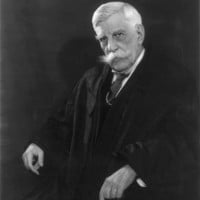
Oliver Wendell Holmes Jr. was an Associate Justice on the Supreme Court from 1902 to 1932. He was appointed by President Theodore Roosevelt. Oliver Wendell Holmes was very popular for his dissents. He became know as The Great Dissenter. While that may seem bad, his dissents would most of the time change the majority opinion. His dissents were not out of spite of the majority opinion, but instead to either improve the majority opinion or mark a big flaw in the majority opinion. His dissents were well articulated and simply brilliant. Modern lawyers, law professors, Justices, and even Politicians quote his dissents. He was a man of high intelligence, but always strove to learn more, even in his last year after retiring. I personally love him because of his amazing dissents, his staunch opposition to a Legislative Judicial system, and his fervent support of free speech. Holmes was a man that was admired by everyone and a great person to study.
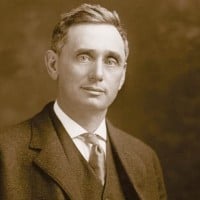
Louis Brandeis was an Associate Justice from 1916 to 1939. He was appointed by President Woodrow Wilson. Louis Brandeis may be one of my favorite Justices. I am simply fascinated in him. He was a very outspoken Justice. He was against Judicial Activism and joined Holmes on many of his famous dissents. Brandeis also made many famous dissents himself. He was a major defender of free speech and the first amendment. Brandeis was also very vocal about some of President Franklin Delano Roosevelt's New Deal Policies like Charles Evans Hughes. He wanted to put power to the states, but did it without hurting the power of the Court. Sometimes Brandeis is forgotten, because he had both Holmes and Hughes as colleagues. In this list, he will be recognized for his unwavering support of the common man, law, and Democracy.
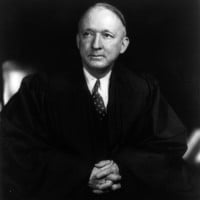
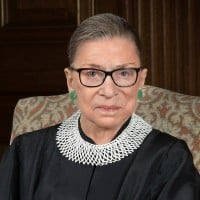
Ruth Bader Ginsburg was an Associate Justice from 1993 to 2020. She was appointed by President Bill Clinton. I am not a big fan of Ginsburg, because she is probably the biggest Judicial Activist in the Court's history. She was a trailblazer though and a Justice defendant. She was very influential to not just the court, but to young women around the world that want to be something.
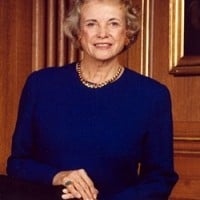
Sandra Day O'Connor was an Associate Justice from 1981 to 2006 and serves today as an Honorary Justice. She was nominated by President Ronald Reagan. O'Connor was a trailblazer for women as she was the first woman on the court. O'Connor was also a very decisive swing vote on the Court for many years. She is also famous for well researched dissents and opinions.
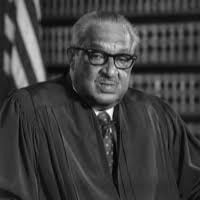
Thurgood Marshall served on the Supreme Court from 1967 to 1991. He was appointed by President Lyndon Johnson. Marshall is a lot more famous as a Lawyer, because of his close to 30 Supreme Court victories. He was the first African American to serve on the court, but unfortunately he was a Judicial Activist. He was a very quiet man though and was reportedly a fun dude.
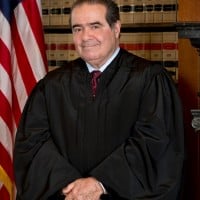
Antonin Scalia was an Associate Justice from 1986 to 2016. He was appointed by President Ronald Reagan. Antonin Scalia was a legal giant. His Judicial Style and Philosophy alone made him very influential. He was a great arguer, orator, and made many great dissents and written opinions. He was perhaps the greatest supporter of originalism and text. He was also staunch opponent of Judicial Activism and the view of a "Living Constitution". A view I agree with. Scalia was very influential in the Court and his arguments were very convincing. His influence also reached beyond the Court as he is, perhaps, the most famous Justice to have ever served. He inspired thousands of people to become lawyers as well, like myself. Scalia will always be known as a fierce legal giant.
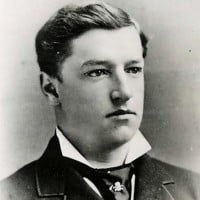 William Howard Taft served as the 27th President of the United States and as the tenth Chief Justice of the United States, the only person to have held both offices.
William Howard Taft served as the 27th President of the United States and as the tenth Chief Justice of the United States, the only person to have held both offices. William Howard Taft was the Chief Justice from 1921 to 1930. He was appointed by President Warren G. Harding. Besides being the only Justice to ever be President. Taft was very influential. Taft improved the Court's efficiency and he played a big role in passing the Judge's Act, which allowed the Court more leeway on which cases they would hear. His most important act was Myer v. United States. In this case, the Court upheld the right that the President has the authority to remove federal officials. Taft was very influential on the court. Plus he was fat.
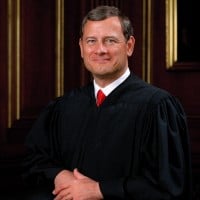
John Roberts has been the Chief Justice since 2005. He was appointed by President George W. Bush. Roberts is by far one of the smartest Justices on the Court. His actions showed a determination to maintain the legitimacy of the Court and a devotion to it's members. His actions speak louder than his words a lot of time. I support his decision to not preside over President Donald Trump's Second Impeachment Trial, which pretty much confirms it was illegitimate. Roberts has made a few decisions that do not support my claim that he is against Judicial Activism, but on the most part he is. We are lucky to have Chief Justice Roberts. I hope you have enjoyed this list. Feel free to comment, remix, and share.
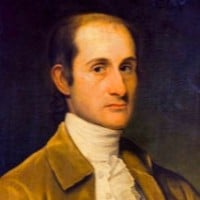
John Jay was the Chief Justice from 1789 to 1795. He was appointed by President George Washington. John Jay was the first ever Chief Justice of the United States. He affirmed that the Court would not make legislative decisions, but instead it would make decisions based on the Constitutionality. Thus creating our Supreme Court.
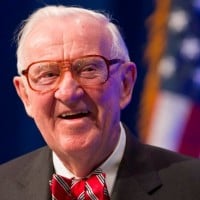
John Paul Stevens was an Associate Justice from 1975 to 2010. Stevens was appointed by President Gerald Ford. Stevens was very moderate in a super conservative court which made him seem liberal when he wasn't. Stevens was a very good Justice that protected first amendment rights vigorously.
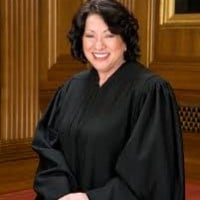
Sonia Sotomayor has been an Associate Justice since 2009. She was appointed by President Barack Obama. Firstly, prayers to her family as last year a gunman killed her son and wounded her husband and recently there have reports the gunman is tracking her. I pray for her safety. She is set to become the leader of the Liberal wing with the passing of Ruth Bader Ginsburg. She is influential for being the first Latino Justice.
She was the first Hispanic American to be a judge at the U.S Court House of Justice.
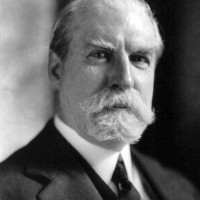
Charles Evans Hughes was an Associate Justice from 1910 to 1916 and the Chief Justice from 1930 to 1941. He was first appointed by President William H. Taft and was appointed again a 2nd time by President Herbert Hoover. Hughes first run as Justice was rather bland. He was the average Justice. He had a much larger role in his second appointment. He was in staunch opposition of some of President Franklin Delano Roosevelt's New Deal policies and his Court struck some of them as unconstitutional. His Court also made select Constitutional Laws applicable to the States, like the Bill of Rights. His most important contribution was protecting the integrity of Court when FDR attempted to delegitimize it. He played a leading role in defeating FDR's unconstitutional attempts to pack the Supreme Court. Hughes would provide the most in protection of the Court since John Marshall.
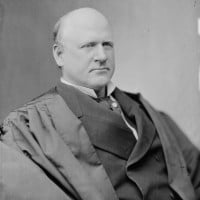
John Marshall Harlan was an Associate Justice from 1877 to 1911. He was appointed by President Rutherford B. Hayes. Harlan's story was very interesting. He was opposed to the Emancipation Proclamation by President Abraham Lincoln, but over time became more and more aware of the racism of the time. When he was appointed to the Supreme Court, he was a staunch supporter of the rights African Americans. He provided one of the greatest dissents in history when he dissented the majority opinion in Plessy v. Ferguson. He said in his dissent, "our Constitution is color-blind, and neither knows nor tolerates classes among citizens." He was a very forceful dissenter. In his 34 year tenure, he wrote 1,161 opinions with 316 dissents included in that.
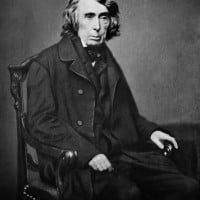
Rodger B. Taney was the Chief Justice from 1830 to 1864. He was appointed by President Andrew Jackson. Taney is one of the most influential and powerful Supreme Court Justices in history. Taney wrote the majority opinion for the Dred Scott Case. That is very interesting, because Taney himself was against slavery, because he was a devout Catholic. It makes me wonder why he wrote the majority opinion for the case which considered Slaves to be property instead of people. Taney also got into a heated debate with President Abraham Lincoln over Lincoln's suspension of the Writs of Habeas Corpus. He was very respected and was considered highly intelligent, thoughtful, and kind.
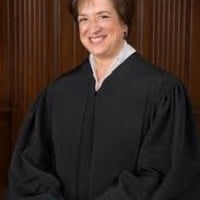
Elena Kagan has been a Associate Justice since 2010. She was appointed by President Barack Obama. Kagan is famous for being the 100th Associate Justice on the Court. She is one of the more moderate voices and she rarely writes her own opinion. She is very intelligent though and even garnered the praise of Justice Antonin Scalia before her nomination.
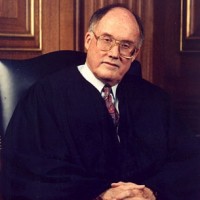
William Rehnquist was an Associate Justice from 1972 to 1986 and the Chief Justice from 1986 to 2005. He was appointed by President Richard Nixon and elevated to Chief by President Ronald Reagan. Rehnquist would play a major role in the transition from the Liberal thinking Court of the 60s and 70s to a Conservative thinking Court of the modern day society. He also increased the effectiveness of the Court when he became the Chief Justice. He is also known as Constitutional Encyclopedia and was by far one of the most knowledgeable Justices in history. The worst thing about his tenure was his leadership during Planned Parenthood v. Casey, which was expected to overturn Roe v. Wade, but it instead enforced Roe v. Wade. Otherwise he was a very influential Justice.
Anthony Kennedy was an Associate Justice from 1988 to 2018. He was appointed by President Ronald Reagan.
